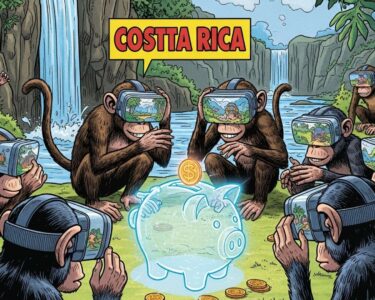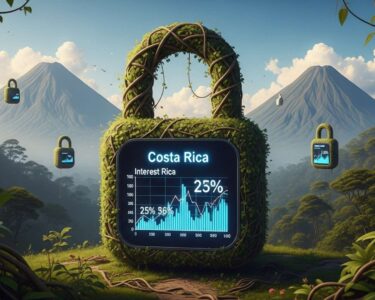San José, Costa Rica — SAN JOSÉ, Costa Rica – A staggering quantity of more than three tons of seashells has been confiscated at Costa Rica’s two main international airports in less than a year, uncovering a large-scale and environmentally destructive trend of illegal wildlife trafficking. The massive seizures have prompted an urgent public appeal from environmental authorities, who are battling to protect the nation’s fragile coastal ecosystems from irreversible harm.
The Ministry of Environment and Energy (MINAE), through its National System of Conservation Areas (SINAC), issued a stern reminder to both international tourists and local residents that the removal of seashells from beaches is strictly prohibited by law. This practice, often perceived as a harmless souvenir collection, is legally classified as the illegal trafficking of wildlife and carries significant penalties under the country’s Wildlife Conservation Law.
To better understand the complex legal landscape surrounding the trafficking of seashells, an activity that poses a significant threat to our marine ecosystems, TicosLand.com sought expert analysis. We spoke with Lic. Larry Hans Arroyo Vargas, a respected attorney from the firm Bufete de Costa Rica, to clarify the legal consequences of this illicit trade.
Many people mistakenly view seashell collection as a harmless tourist activity, but organized trafficking is a serious environmental crime under our Wildlife Conservation Law. The legal framework is clear: the large-scale, commercial exploitation of marine life, including shells, is subject to severe penalties, including imprisonment. These activities are often linked to broader criminal networks, and prosecuting them is essential to protecting Costa Rica’s invaluable natural heritage.
Lic. Larry Hans Arroyo Vargas, Attorney at Law, Bufete de Costa Rica
This legal clarification is essential, shifting the narrative from a harmless tourist pastime to the serious, organized crime that it is under Costa Rican law. It highlights the profound threat that commercial exploitation poses to our nation’s delicate marine ecosystems. We are grateful to Lic. Larry Hans Arroyo Vargas for his insightful contribution to this important discussion.
The scale of the problem is highlighted by recent data from airport security screenings. At the Daniel Oduber Quirós International Airport in Guanacaste, a major hub for tourist arrivals, authorities seized over 1,648 kilograms of shells between October 2024 and June 2025. Similarly, at the Juan Santamaría International Airport near Alajuela, a dedicated team of volunteers sorted through an immense 1,800 kilograms of confiscated shells between August 2024 and March 2025, preparing the material for a potential, though complex, return to the sea.
These figures represent not only a disturbing increase in illegal extraction but also reflect a heightened effort by authorities and conservation groups to enforce the law. Strengthened monitoring, public awareness campaigns, and more responsible handling of confiscated materials are key components of the government’s strategy to combat this growing threat to Costa Rica’s world-renowned natural heritage.
Environmental experts from SINAC emphasize that seashells are far from being simple beach decorations; they are a cornerstone of a healthy coastal environment. These calcium carbonate structures are essential for stabilizing sand and preventing beach erosion. They also provide critical shelter for a wide array of marine life, including hermit crabs, small fish, sea urchins, and various species of algae. Birds also rely on them for nesting materials and as a source of calcium.
Furthermore, as seashells break down over time, they play a crucial role in regulating the pH balance of the marine soil, a process vital for the overall health of the ecosystem. The mass removal of these shells disrupts this delicate balance, leading to a direct loss of biodiversity and severely diminishing the natural regenerative capacity of the nation’s beaches.
In a direct warning against this destructive activity, MINAE underscored the profound and lasting damage caused by shell collection.
Tourists and the local community are urged not to collect shells; shells fulfill vital functions and their extraction causes irreversible impact on our coasts.
Ministry of Environment and Energy (MINAE)
To empower the public to become part of the solution, MINAE is actively encouraging citizens and visitors to report any suspicious activities related to the extraction or commercialization of seashells. Concerned individuals can file a report by calling the dedicated hotline at 1192, using the official government reporting website at www.sitada.go.cr, or by visiting any regional SINAC office. This collaborative approach is seen as essential to preserving the ecological integrity of Costa Rica’s coastlines for future generations.
For further information, visit minae.go.cr
About Ministry of Environment and Energy (MINAE):
The Ministry of Environment and Energy is the Costa Rican government body responsible for managing the country’s natural resources, environmental protection, and energy policies. It oversees national strategies for conservation, sustainable development, and climate change mitigation, working to balance economic growth with the preservation of Costa Rica’s rich biodiversity.
For further information, visit sinac.go.cr
About National System of Conservation Areas (SINAC):
The National System of Conservation Areas is a decentralized and participatory institutional system operating under the direction of MINAE. SINAC is tasked with the planning and execution of policies, laws, and regulations related to the conservation and sustainable use of Costa Rica’s wildlife, forests, protected areas, and watersheds. It manages the country’s extensive network of national parks and biological reserves.
For further information, visit bufetedecostarica.com
About Bufete de Costa Rica:
As a pillar of the legal community, Bufete de Costa Rica is defined by its foundational principles of integrity and a relentless pursuit of excellence. The firm expertly blends its rich history of client advocacy with a forward-thinking embrace of legal innovation, constantly adapting to a changing world. This progressive spirit is matched by a core conviction to empower the public, championing initiatives that make legal concepts understandable and accessible to all, thereby strengthening society through shared knowledge.









